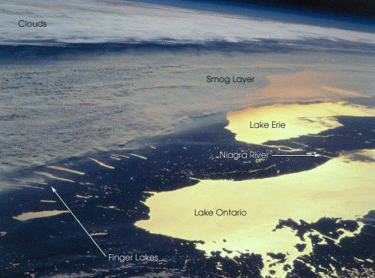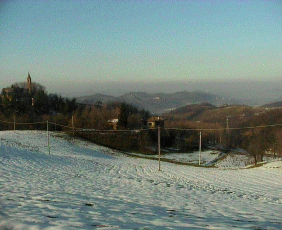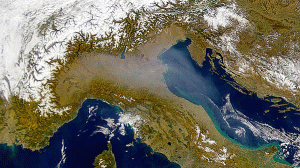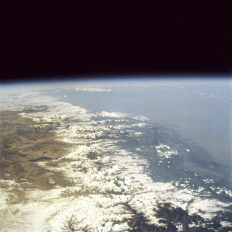Introduction
Two preliminary considerations:
i) 21st-century man's demand for goods and services has no precedent in history, and the state of health of the economy is founded precisely on this constant increase in consumption.
ii) Every human activity, from large scale industrial production to individual small everyday actions, releases chemical substances which sooner or later are discharged into the biosphere.
If we put these two issues together it is apparent that human beings, due both to their increasing numbers and also their increasing demands, seem destined over time to exert more and more aggressive pressure on the environment.
This is exactly what we mean by the "dirty face" of development. If mankind were able to learn from his mistakes, then emerging countries would set off down "clean paths" of development, without repeating the questionable behaviour, in terms of damage to the environment, of rich countries in the last fifty years. Unfortunately, virtuous behaviour is also the most expensive; today, the main goal for three billion Indian and Chinese people is to speed up their economic development as much as possible without losing time and money addressing environmental and health issues. Adopting industrialisation as the quickest route to rapid economic development brings with it the large-scale importation of technologies, often obsolete and dirty, from more developed countries.
Evidence of the price our
planet pays for development is provided in
the following pictures. This development is incapable of limiting the
deterioration of the quality of the air, emitting
particulate matter![]() ,
volatile organic compounds
,
volatile organic compounds![]() and
nitrogen oxides
and
nitrogen oxides![]() caused to a large
extent by combustion processes.
caused to a large
extent by combustion processes.
|
||
| Fig. 2: A
layer of
smog (Credit: Istituto di Fisica dell'Atmosfera - CNR) |
||
| Fig. 1:
Picture of Bologna's plain taken from Mongiorgio. The darker layer on the
horizon identifies
thermal inversion (Credit: C.Trombini - Dip. di Chimica UniversitÓ di Bologna) |
||
| Fig. 3:
The Himalayan mountain chain bounds the thick layer of
smog on the Indian subcontinent (right
of picture). In contrast, the air mass over the Tibetan plateau
(left) is crystal clear. (Credit: Evans, C. A. 13 Jun. 2001. "Shuttle-Mir Program Earth Science") |
 |
Fig. 4:
The Great Lakes area in Northern America (Erie and Ontario). A layer of
smog is trapped between the clouds at the top
and ground at the bottom. (Credit: STS-92 Crew, NASA ) |
21st century man,
Homo faber, or better Homo technologicus (man who uses
![]() ), is affected
by a feeling of omnipotence due to the extraordinary power of technology, which
allows him to solve extremely complex (albeit
temporary and marginal) problems. However, he is still lacking in
foresight when confronting problems such
as pollution, whose long term effects are
deferred in space and time, both on a
local and global scale.
), is affected
by a feeling of omnipotence due to the extraordinary power of technology, which
allows him to solve extremely complex (albeit
temporary and marginal) problems. However, he is still lacking in
foresight when confronting problems such
as pollution, whose long term effects are
deferred in space and time, both on a
local and global scale.
The Webweavers: Last modified Tue, 20 Jul 2005 10:00:51 GMT


